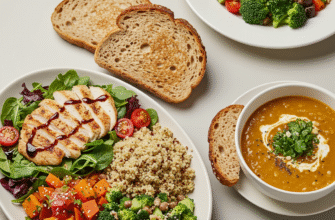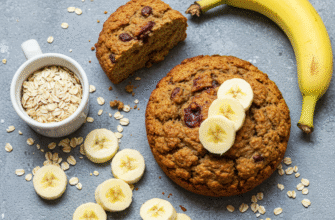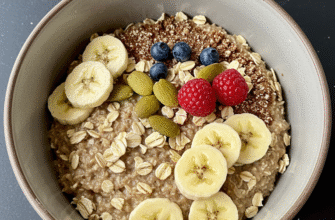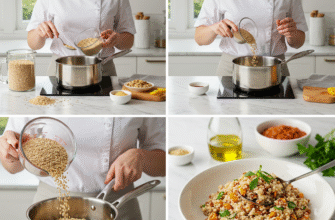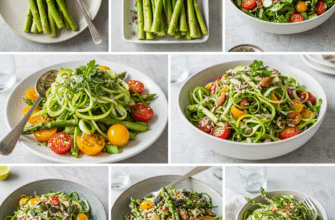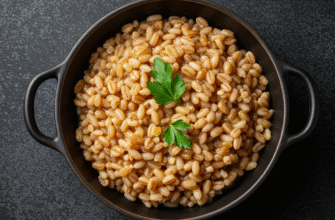We often think of self-care as bubble baths, yoga retreats, or maybe just carving out five minutes of quiet time. These are all valuable, absolutely. But what about something we often have to do anyway, multiple times a day? Eating. And more specifically, the act of preparing that food. Healthy cooking, often viewed as just another chore on an endless list, can actually be a deeply satisfying and restorative form of self-care, nourishing more than just our physical bodies.
Let’s face it, the daily grind can leave us feeling depleted, disconnected, and running on fumes. We grab quick meals, often processed or ordered in, because we’re tired or short on time. While convenient, this often bypasses an incredible opportunity to reconnect with ourselves and engage our senses in a grounding, mindful activity. Reframing cooking not as an obligation, but as a deliberate act of kindness towards yourself, can be transformative.
The Kitchen as a Sanctuary
Think about the process of cooking. It demands presence. You can’t really multitask effectively when you’re chopping vegetables, monitoring heat, or carefully measuring ingredients. This forced focus pulls you away from swirling anxieties, endless to-do lists, and digital distractions. It brings you squarely into the present moment.
Engage your senses fully. Feel the smooth skin of a bell pepper or the rough texture of a sweet potato. Listen to the rhythmic chop of your knife on the cutting board, the sizzle of onions hitting a warm pan, the gentle bubble of a simmering sauce. Inhale the fragrant aroma of garlic, herbs, or spices as they release their essence. Taste as you go, adjusting seasonings. This sensory immersion is mindfulness in action. It’s a way to anchor yourself in the ‘now’, providing a mental break that can be incredibly calming and centering.
This isn’t about becoming a gourmet chef overnight. It’s about the intention behind the action. Even simple tasks, like washing lettuce or whisking eggs, become opportunities for mindful practice when approached with awareness rather than rushed indifference.
Nourishing From the Inside Out
The connection between what we eat and how we feel, both physically and mentally, is undeniable. Choosing to cook healthy meals is a direct investment in your well-being. Selecting fresh, whole ingredients – vibrant fruits and vegetables, lean proteins, whole grains – is an act of self-respect. You are consciously choosing to fuel your body with the nutrients it needs to function optimally.
This act goes beyond just calories and vitamins. When you take the time to prepare a meal that you know is good for you, there’s an inherent sense of accomplishment and care. You’re actively participating in your own health journey. Compare the feeling after eating a thoughtfully prepared, balanced meal versus one hastily consumed from a package. The former often leaves you feeling energized and satisfied, while the latter can lead to sluggishness or discomfort. This physical feedback loop reinforces the positive choice you made by cooking.
Engaging in home cooking often leads to greater control over ingredients and portion sizes. Studies suggest that people who cook meals at home more frequently tend to consume fewer calories, less fat, and less sugar compared to those who rely more heavily on restaurant or pre-packaged foods. This conscious selection contributes significantly to overall dietary quality.
Cooking empowers you to control what goes into your food. You avoid hidden sugars, excessive sodium, unhealthy fats, and artificial additives often lurking in processed or restaurant meals. This control is a powerful aspect of self-care, allowing you to tailor meals to your specific needs and preferences, actively nurturing your physical health.
Unleashing Creativity and Control
Life can often feel chaotic and outside of our control. The kitchen, however, can be a realm where you are in charge. You decide the menu, the ingredients, the flavors. Following a recipe provides structure, but there’s almost always room for improvisation and creativity.
Don’t like mushrooms? Leave them out. Love garlic? Add an extra clove. Want to try a different spice blend? Go for it! Cooking offers a safe space to experiment and express yourself. The simple act of combining ingredients to create something delicious and visually appealing can be incredibly rewarding. It taps into our innate desire to create and provides tangible results – a beautiful, nourishing meal.
This sense of agency and accomplishment can boost self-esteem and combat feelings of helplessness. You took raw ingredients and transformed them into something wonderful. That’s a powerful feeling, a mini-victory in your day that contributes to a greater sense of capability and well-being.
Making Time, Not Finding Time
Okay, the reality check: “I don’t have time to cook healthy meals every day!” This is a common and valid concern. Modern life is demanding. However, incorporating cooking as self-care doesn’t necessarily mean spending hours in the kitchen daily. It’s about shifting perspective and finding strategies that work for you.
Consider these approaches:
- Start Small: Commit to cooking just one or two more meals at home per week than you currently do. Even small changes add up.
- Meal Prep Lite: You don’t need to spend all Sunday prepping intricate meals. Simply washing and chopping some vegetables, cooking a batch of grains (like quinoa or brown rice), or grilling some chicken breasts can make assembling quick, healthy meals during the week much faster.
- Embrace Simplicity: Healthy cooking doesn’t have to be complicated. Think simple roasted vegetables, pan-seared fish, hearty salads with beans or lentils, or quick omelets loaded with veggies. Focus on recipes with fewer ingredients and steps initially.
- Stock Your Pantry: Having healthy staples on hand (canned beans, lentils, tuna, whole-wheat pasta, oats, frozen vegetables, onions, garlic, spices) makes whipping up a nutritious meal much easier when time is tight.
- Reframe the Time: Instead of seeing cooking time as “lost” time, view it as dedicated self-care time – an investment in your physical and mental health, much like you might view time spent exercising or meditating. Put on some music, listen to a podcast, or simply enjoy the quiet focus.
Cooking as Connection
While cooking for oneself is powerful self-care, the act can also extend outwards, fostering connection. Preparing a meal for loved ones can be a profound expression of care and affection. Sharing that meal together strengthens bonds and creates positive memories. Even the simple act of plating your own meal attractively, sitting down without distractions, and truly savoring it enhances the experience and reinforces the feeling of self-worth.
Ultimately, healthy cooking is far more than fuel. It’s a mindful practice, a creative outlet, an act of self-love, and a powerful tool for nurturing both body and soul. By reclaiming the kitchen as a space for care rather than just a chore, you unlock a readily accessible and deeply rewarding pathway to greater well-being. So, put on your apron, turn on the stove, and start cooking up some self-care. You deserve it.



